The return of tourism in Nusa Penida is causing a mixed response for community leaders in the area. The Klungkung regency government has raised concerns that seaweed farmers are abandoning their crops in return for work in the tourism sector, diminishing progress that was made to the local economy during the pandemic.
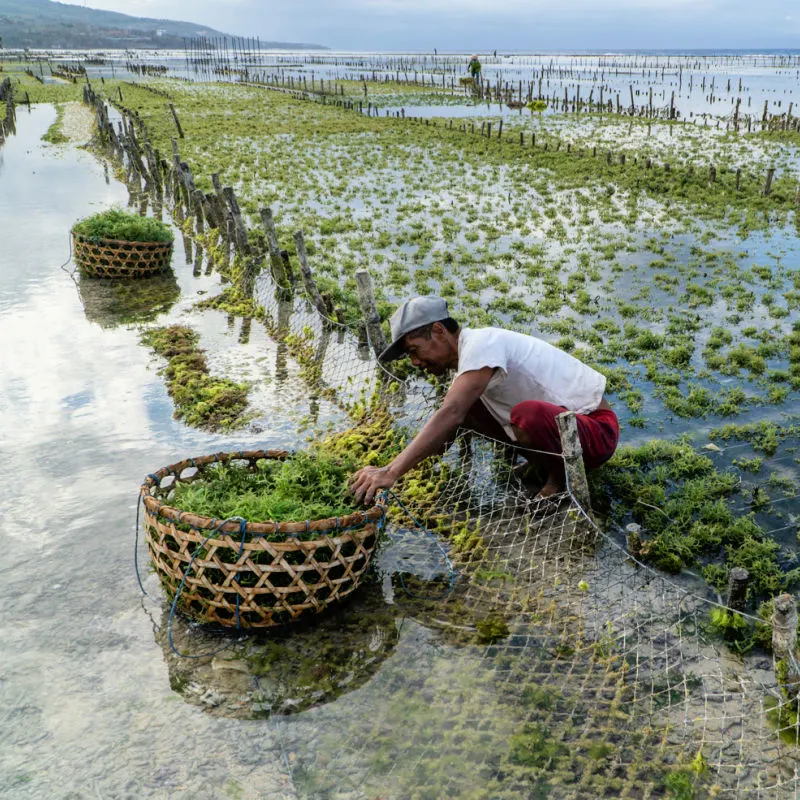
When Covid-19 hit Nusa Penida many local people turned to seaweed farming as a form of income. The initiative helped to stabilize the local economy and supported the whole community. As tourism has returned, the local governments are concerned that progress will backtrack and the local economy will become dependent on risky tourism again.
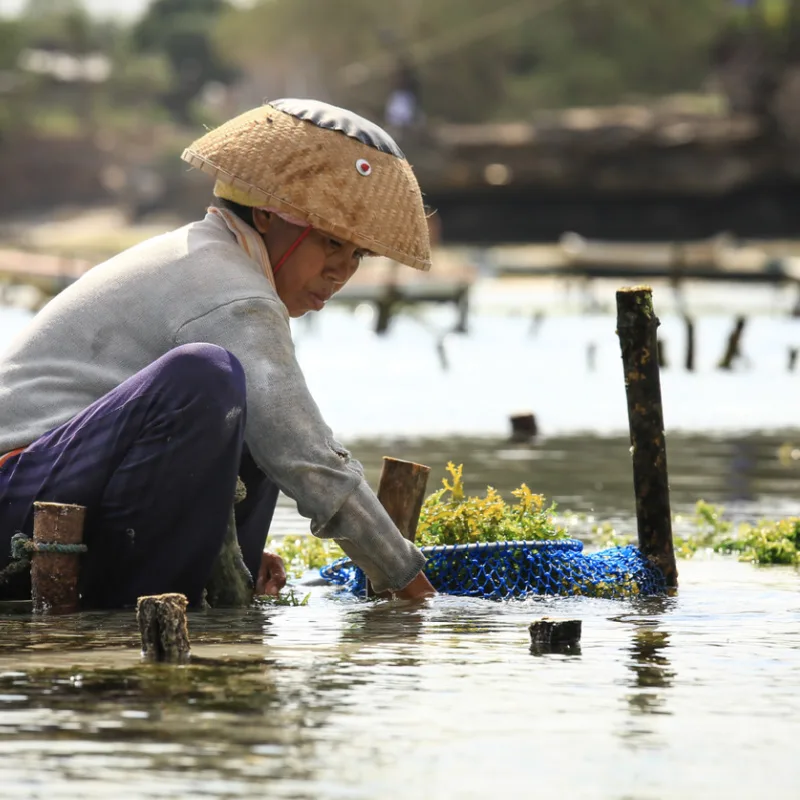
A member of the Klungkung regency government, I Made Satria, said spoke at the plenary meeting on Tuesday. He said that it was the regency’s responsibility to work with local seaweed farmers to continue their profitable farming efforts to diversify and strengthen the local economy. He stated that seaweed farming can complement tourism in the area and should not be shunned in favor of dependency on the tourism market.
In response, Klungkung Regent I Nyoman Suwirta, said that he has collaborated with the seaweed farmers in Nusa Penida. He said that he and his teams had cooperated with seaweed farmers to market the product, design new management protocols and systems for the production of seaweed products that can be sold to tourists and exported to foreign markets. These products include dish soap, skin products, and seaweed snacks.
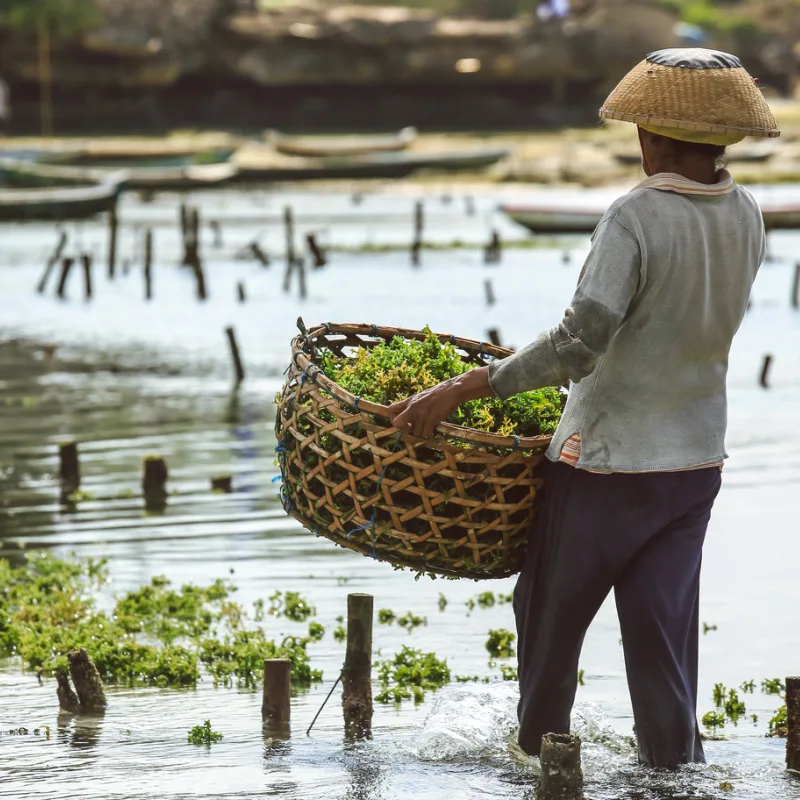
The Head of the Klungkung Food and Fisheries Security Service, Dewa Ketut Sueta Negara, also spoke and shared how his teams have been working to incentivize the seaweed farmer’s efforts. He stated how he had been working with the community to blend tourism and seaweed farming to help promote both industries since tourism remains unstable and seaweed farming is far more predictable and controllable.
He said ‘We continue to provide assistance, facilitate access to assistance, maintain good seaweed prices, protect land use from seaweed farmers’.
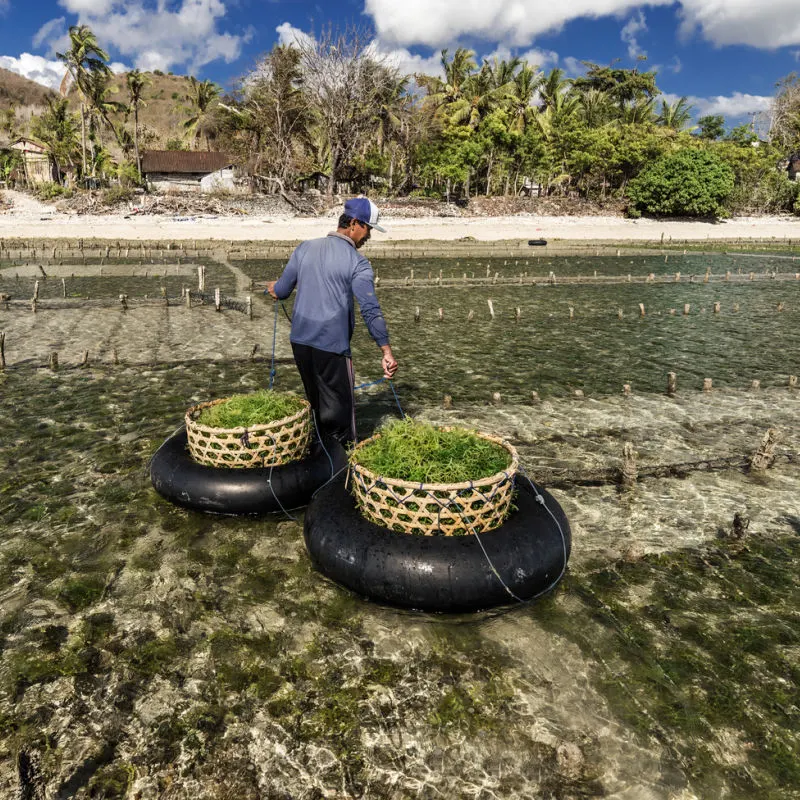
Sueta continued to say that when tourism had to be abandoned in Nusa Penida that the income generated from seaweed farming was sufficient to support the community’s economy. He shared that he hoped that lessons had been learned from the pandemic and that local seaweed farmers could continue to receive support from the regency government to grow the reliable industry. He said ‘They [seaweed farmers] learn from experience when the tourism sector was quiet due to the Covid-19 pandemic’.
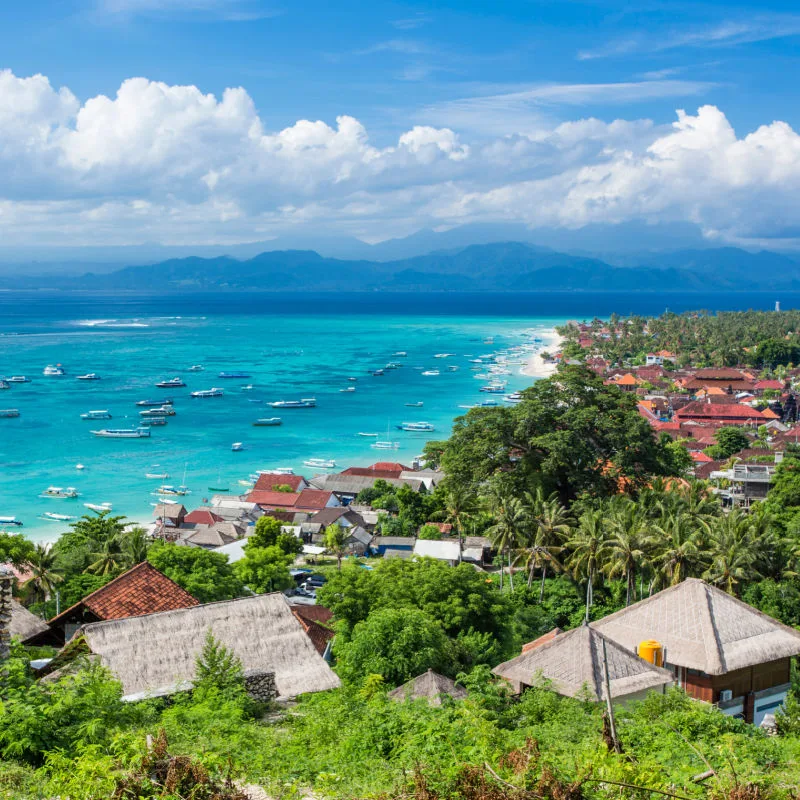
Despite the economy in Bali being decimated by the loss of tourism, there were some silver linings to manifest from the tragedy. Across the board, farming exports increased in value, with coffee recently being named as the savior of Bali’s economy.
Over the course of the pandemic, coffee exports from Bali boomed and show no sign of slowing down. This news also led leaders in the Bali coffee sector to advise farmers not to return to tourism when profits from coffee were high and reliable. If the pandemic has bought any lessons to Bali it is that the economy needs to eye stronger and more diverse than to rely on tourism for over 60% of its income.
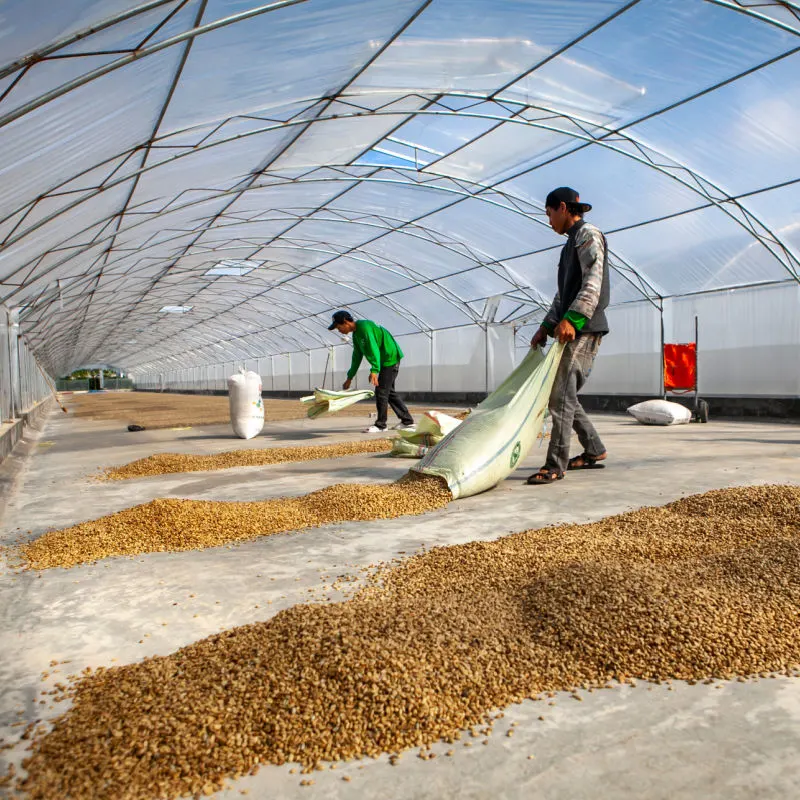
For example, Bali’s coffee exports improved over the course of the pandemic, both in terms of value and volume. In 2020 Bali exported 87.7 tons of coffee beans, with a value of IDR 8.05 billion, an increase on 2019. In 2021 this increased again, with the island exporting 154.9 tons to international exporters, generating IDR 10.7 billion.
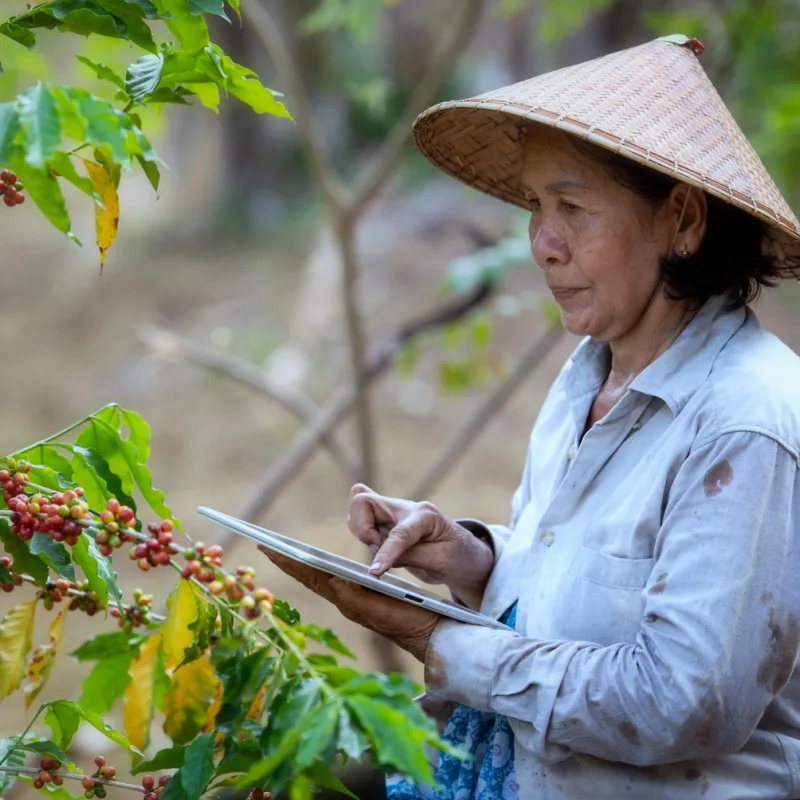
Leaders in the coffee sector met in June 2022 to discuss the future of coffee farming on the Island of the Gods. I Dewa Agung Putra Agung, who is a coffee exporter, told the room of coffee experts, that the sector needed more support for the smooth exportation of coffee products. That the limiting factor for Bali’s coffee industry was the automation of documentation for the strict paperwork requirements to import coffee to neighboring countries in Asia and across Europe.
While tourism in Bali will remain the island’s mainstay income for decades to come, it is a smart move to continue to invest and develop profitable agriculture to support the economy at a local community level and from an island-wide perspective.
Remove All Ads & Unlock All Articles… Sign up for The Bali Sun Premium

Plan Your Bali Holiday:
Book The Best English Speaking Drivers For Airport Transfers & Tours
Choose From Thousands of Bali Hotels, Resorts, and Hostels with Free Cancellation On Most Properties
Book Cheap Flights To Bali
Don’t Forget Travel Insurance That Covers Medical Expenses In Bali
For the latest Bali News & Debate Join our Facebook Community
SUBSCRIBE TO NEW POSTS
Enter your email address to subscribe to The Bali Sun’s latest breaking news, straight to your inbox.

Wayan Bo
Monday 15th of August 2022
Perhaps because too many tourists arrived in overweight condition.